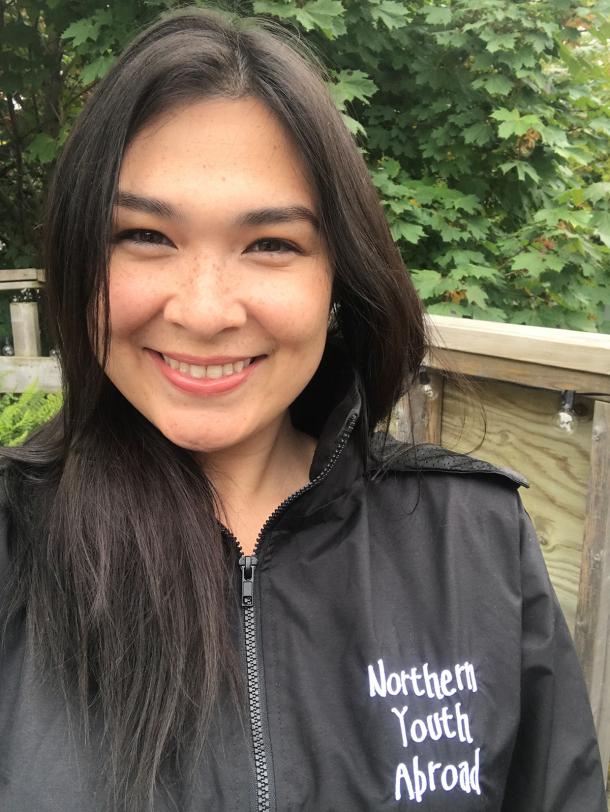What is the best way to study resilience to childhood trauma among Inuit? What does “success” look like in the face of trauma?
These are just some of the big questions that Karen Aglukark, recipient of the inaugural Institute of Mental Health Research (IMHR) Culture and Gender Mental Health Graduate Student Research Award, is seeking to answer as she pursues her master’s degree in neuroscience at Carleton University.
The goal of the Culture and Gender Mental Health Graduate Student Research Award is to support capacity and engagement of Indigenous youth in graduate research in mental health and wellness.
Aglukark’s research project is not merely focused on the effects of trauma on Inuit youth, she’s working with Inuit to learn what helps them stay strong.
“I want to find ways to help Inuit who have grown up in difficult situations,” says Aglukark. “We hear about high suicide rates among Inuit but the reality is many Inuit have been incredibly successful given the circumstances.”
Growing up in Arviat, Nunavut, Aglukark originally set her sights on a career in law. After graduating from Carleton University with a bachelor of humanities, she returned to Nunavut to work in research and policy before applying to law school. Instead of forging ahead on her chosen path, she chose another.
“In every department in Nunavut, every Inuit organization, there was a call for mental health support,” describes Aglukark. “Like through a megaphone, everyone was saying we don't have mental health services, and this is what we need.”
She went back to university to focus on psychology and was excited by the work people were doing to understand child and youth mental health. “It really made me think of how we can take these different approaches and support Inuit children,” says Aglukark.
For this research project, Aglukark is not studying trauma simply for the sake of understanding it. “We can talk to a few people who have experienced these things and I'm sure we'll get a really clear idea,” she says. “What we're trying to do is find out how Inuit have managed to create wellbeing in themselves, in their communities, or in their families.”
Her process will involve deep discussions with members of the Inuit community in Ottawa, which will be facilitated through partnerships with Inuit organizations such as the Mamisarvik Healing Centre to help gather, evaluate, and eventually share research outcomes.
“We need to do it in the right way that fits for Inuit,” says Aglukark.
If she had to guess, the answer is likely to involve reclaiming traditional skills and knowledge. “That's what the literature tells us. That's what experience tells us.”
“There are a lot of institutions that don't naturally accept Inuit forms of knowledge as fact. That's why I'm really grateful for Kim (Matheson's) support, the university's support, and the IMHR because this is expertise. We are gaining expert knowledge here.”
“This is about building and empowering the strengths of Inuit from within,” says Aglukark. Dr. Kim Matheson is the joint research chair in culture and gender mental health at the IMHR and the department of neuroscience at Carleton University.
Matheson, who is supervising Aglukark’s research, appreciates the opportunity to “build up the pipeline” of young people actively engaged in promoting mental health among Indigenous peoples, but in a way that is culturally relevant.
“There's a western definition of what constitutes mental health or wellness. Is it really the same for the Inuit community? What is wellness? Is wellness about suicide prevention, or is wellness about having strong family ties for example that have downstream effects on preventing suicide?” asks Matheson.
Matheson points out that when a crisis happens in northern communities the typical reaction is to send mental health counselors in from outside the community, only to have them leave after the crisis is deemed to be over.
Aglukark is hopeful the results of her research will bring what she calls the “power of wellness” back to Inuit communities, and that someday, wellness practitioners won’t have to leave Nunavut to learn how to help their own people.
“This is about building and empowering the strengths of Inuit from within,” says Aglukark.
For Matheson, this research represents a foundational step that will lead to people like Aglukark making a real difference.
“I'm so proud of Karen. She's phenomenal and I'm really glad that she is the inaugural award winner … This work is what I was hoping could be supported through this graduate award.”

